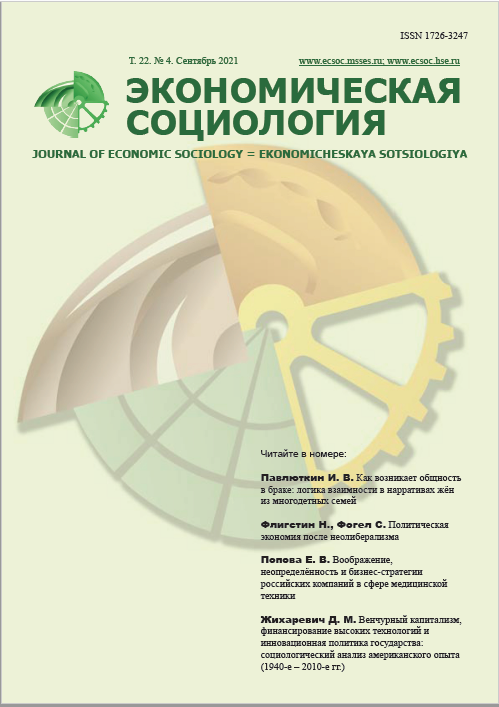Skinner's Box for the Consumer
Book Review: Zuboff Sh. (2019) The Age of Surveillance Capitalism: The Fight for a Human Future at the New Frontier of Power, New York: Public Affairs. 691 p.
Abstract
The review signifies the key ideas of the book by Shoshanna Zuboff, who indicates the rise of a new form of capitalism called surveillance capitalism. This economic order is dominated by commercial IT companies, with a power advantage anchored in the monopoly for the means of behavior modification. Algorithms track the personal experience of users, while the scientific processing of these data opens unprecedented opportunities for the prediction of human feelings, desires, and decisions that transform new digital certainty into an inexhaustible source of economic and political profit. Zuboffs research constructs a conceptual language for assessing the quality of a social order that is performatively produced by surveillance capitalism. The author criticizes the new economic system for breaking away from democratic principles. Control over human life, which can be achieved with modern information technology, is overarching. Recently, the massive expansion of consumer markets has fostered democratization and personalization. Surveillance capitalism involves objectifying a unique person to an anonymous Internet user and beginning to make money not out of consumer needs but by selling aggregated information about human behavior that can be used in consumer demand management. The fundamental message of the book is that European society is again risking its humanistic ideals for monetary gain. The book proves this message with the author's eight-year ethnography in the field of global technology corporations. Field results are assessed against the postulates of social behaviorism. The review reveals the experience of reading Sh. Zuboff's book in the context of the exploitation of man by man in modern European society. Researchers who compare different forms of capitalism with each other, think about the digitalization of the social order, or care about the challenges for human rights under different economic regimes will find the book thought-provoking and, therefore, useful.













